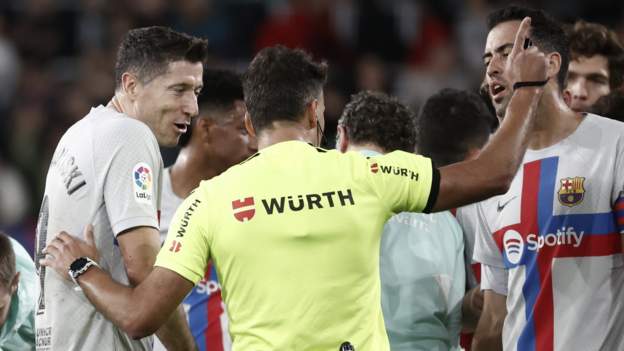Lewis Hamilton has questioned whether Formula 1’s new rules are the “right direction” but said that the new engines are a “bold step”.
Governing body the FIA has revealed plans for cars to be smaller, nimbler and more environmentally friendly from 2026.
Cars will be 30kg lighter, 10cm narrower and have engines with a near 50-50 split between electric and internal combustion power – and use fully sustainable fuels.
Hamilton, who has previously called for the cars to be made lighter, said: “It’s only 30kg so it’s going in the right direction but they’re still heavy.
“I have spoken to some drivers who have driven it on the simulator – I haven’t – and they said it’s pretty slow so we will see if it’s the right direction or not.
“But in terms of sustainability, particularly on the power-unit side, that’s a really bold step and it’s going in the right direction.
“We have just got to make sure the cars are efficient, fast and a step forwards and actually racing is improved.”
The FIA described the concept at the heart of the 2026 rules as a “nimble car”.
Active aerodynamics will be used to optimise the use of the new engines.
Cars will have front and rear wings that open on the straights to reduce drag and increase speed, but then close to increase downforce for cornering performance.
And overtaking will be facilitated by a power-boost system for a car following another.
This is instead of the current DRS (drag-reduction system) overtaking aid.
The new hybrid engines, which triple the amount of electrical power used, have attracted two new manufacturers into F1 in the shape of Audi and Ford, and persuaded Honda to reverse its decision to quit the sport.
Along with Mercedes, Ferrari and Renault, and the new Red Bull Powertrains company with which Ford is joining forces, there will be a total of six engine manufacturers in F1 in 2026.
FIA president Mohammed Ben Sulayem said: “The key features of the 2026 regulations are advanced, sustainable technology and safety.
“Our aim, together with F1, was to produce a car that was right for the future of the sport’s elite category. We believe we have achieved that goal.”
The rules are a part of F1’s pledge to go net-zero carbon by 2030.
McLaren’s Lando Norris said he was concerned that such a major change in rules would make the field less competitive again just as it was beginning to close up.
“There is going to be another change just as the sport gets exciting again,” Norris said. “I guess there are reasons for it but I don’t want it to go the opposite way. Especially with how complicated it is.
“You could have massive gaps and then people are going to say it’s boring again. Right now it is as exciting as it has been for a very long time.”





















